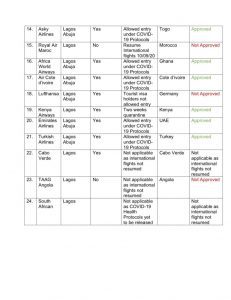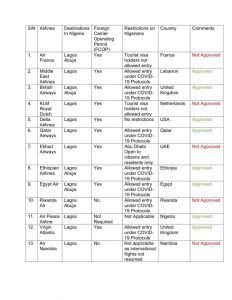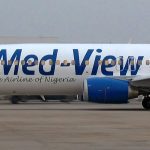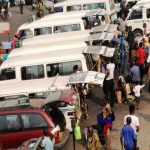One of the sectors that has been seriously affected by the outbtreak of Coronavirus pandemic is the Aviation sector. The spread of the novel coronavirus has caused passenger demand to collapse, forcing airlines to park, rather than fly, their planes. This report examines how Covid-19 is changing air travel as we know it, as countries gradually ease lockdown on international flight operations.
The impact of the coronavirus disease (COVID-19) pandemic on global air transport is enormous. Airports have seen a -28.4 per cent decline in global passenger traffic volumes for the first quarter of 2020, equivalent to a reduction of 612 million passengers in absolute terms. These volumes (domestic and international traffic) are expected to decrease by -50.4 per cent for 2020 as a whole as compared to 2019 figures.
Air Travel: The 9/11 Experience
The collapse in air travel demand has been driven largely by public policy. As Covid-19 spread, governments worldwide chose – in the interests of preserving public health – to ban entry to non-residents. But the slumps in travel demand aren’t new. This is because following the terorist attacks of 11 September 2001, passenger enthusiasm towards flying also waned amid security fears. This forced airlines – then, like now – to cancel flights and puts planes into storage. The 9/11 attacks also forced airlines to trim costs through furloughs, layoffs, and most notably, consolidation. Prior to the attacks, the US airline market – the world’s most lucrative – was largely controlled by eight carriers.
COVID-19 and Global Response to Air travel
Most countries in the world have adopted some measure of lockdown or restriction to movement to reduce transmission of severe acute respiratory syndrome coronavirus 2 (SARS-CoV-2) and ease the burden of admissions in struggling health systems.
Some of these measures have raised questions about the safety of travelling for work and leisure, and current recommendations discourage unnecessary travel. Although the risk of contracting an infectious disease when travelling has always existed, the COVID-19 pandemic has made travellers more aware of this possibility.
With the relaxing of lockdown measures in some countries in light of reductions in the number of COVID-19 cases and the holiday season in the northern hemisphere, many people are facing the dilemma of choosing to travel after months of restrictions or to remain at home for fear of being confined in an aeroplane for hours with other people. Considerations include where it is safe to go, what is the risk of travelling, and what new measures are in place to reduce the risk of COVID-19 for those who decide to travel.
COVID-19 and Int’l Flight Operations in Nigeria
International commercial flights resumed in Lagos today’after five months of closure following the outbreak of the novel Coronavirus pandemic. Although both Lagos and Abuja are supposed to resume international flight operation on Saturday, that of the latter has been postponed to Monday.
The federal government had earlier fixed resumption of international commercial flights for 29th of August but was postponed by a week.
As part of measures put in place to ensure compliance with the COVID-19 Safety protocols, passengers will be asked to follow a number of additional health procedures, including the following:
- wear a mask or face covering.
- All passengers’ temperature will be taken on arrival at the airport.
- Required to observe social distancing measures.
- Will be asked to use hand washing facilities installed outside the airports.
- Bags will be sprayed with decontamination fluids.
The Federal Government on Thgursday relaxed the lockdown restrictions in place and replaced them with new requirements, including a nationwide daily night time curfew between 00:00pm and 04:00am and the mandatory use of face masks in public.
The federal government, through the minisrty of aviation also released list of approved airlines for flight operations in and out of the country. Minister of Aviation, Hadi Sirika, said the decision is based on the policy of reciprocity.
Here is the list of approved airlines for international commercial flights in Nigeria.


What does the future hold for travellers?
The availability of a COVID-19 vaccine will be instrumental in reinstating confidence in travellers. However, it is expected that many airlines will cut services such as meals, drinks, and free magazines, not so much for economic reasons but as a way to limit so-called touchpoints, which are opportunities for COVID-19 transmission.
Rapid testing for COVID-19 for both crew members and passengers could become a regular feature. Enhanced cleanliness and sanitisation will become the norm. Use of masks or other protective equipment will become more common.
Touchless technology will reduce human interaction and facilitate payments and processes linked to travelling.
As more countries continue to relax lockdown on international commercial flights, it is important safety measures are strictly adhered to, in order to sustain the containment of the deadly virus.














